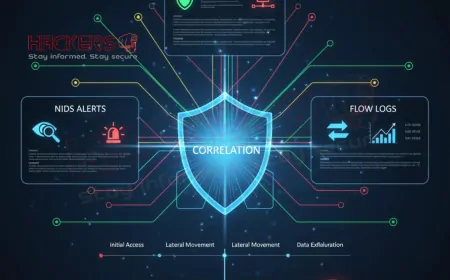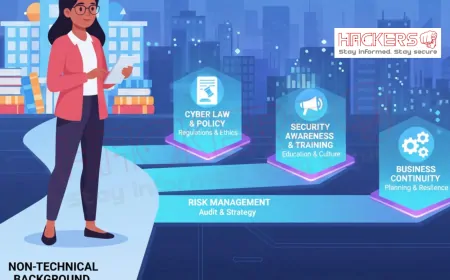How Does COPPA Protect Children’s Privacy Online?
Every day, kids explore the internet, playing games, watching videos, or chatting on apps designed just for them. But with every click, they’re sharing personal details—names, ages, even their location—often without realizing it. In a world where data breaches and online predators are real concerns, how do we keep children safe? That’s where COPPA, the Children’s Online Privacy Protection Act, steps in. This U.S. law, enacted in 1998, acts like a digital guardian, ensuring that websites and apps targeting kids under 13 handle their personal information responsibly. As we navigate 2025, with kids spending more time online than ever, COPPA remains a critical shield against misuse of their data. Whether you’re a parent worried about your child’s privacy, an educator guiding young internet users, or just curious about how kids’ data is protected, this blog breaks down COPPA’s role in simple terms. Let’s dive into how this law keeps our youngest internet users safe in a connected world.

Table of Contents
- What Is COPPA?
- History and Purpose of COPPA
- Who COPPA Applies To
- Key Protections Under COPPA
- How Companies Comply with COPPA
- Enforcement and Penalties
- COPPA in 2025: Recent Developments
- Comparing COPPA to Other Privacy Laws
- Challenges in COPPA Compliance
- What Parents Can Do to Support COPPA
- Conclusion
- Frequently Asked Questions (FAQs)
What Is COPPA?
The Children’s Online Privacy Protection Act, or COPPA, is a U.S. federal law passed in 1998 and enforced by the Federal Trade Commission (FTC). Its primary goal is to protect the privacy of children under 13 by regulating how websites, apps, and online services collect, use, and share their personal information. COPPA applies to operators of commercial websites or online services directed at kids, or those that knowingly collect data from children under 13.
Personal information under COPPA includes names, addresses, email addresses, phone numbers, Social Security numbers, geolocation data, photos, videos, or even audio recordings of a child’s voice. The law requires these operators to get parental consent before collecting such data, provide clear privacy notices, and keep the information secure. For parents, COPPA means you have a say in what data is collected from your kids; for companies, it’s a strict rulebook to follow to avoid hefty fines.
In a nutshell, COPPA is about trust—ensuring kids can explore the internet safely while parents rest easy knowing their information is protected. As digital platforms evolve, COPPA remains a cornerstone of children’s online safety.
History and Purpose of COPPA
In the late 1990s, the internet was booming, and kids were flocking to websites with games and chat rooms. But concerns grew about how these sites were collecting children’s data—often without parents knowing. Reports of marketers targeting kids with ads or even sharing their info raised red flags. Congress responded with COPPA, signed into law on October 21, 1998, to give parents control and protect kids from exploitation.
The purpose of COPPA is twofold: to safeguard children’s privacy and to empower parents. It ensures companies can’t collect data without permission or use it for shady purposes, like targeted advertising without oversight. The law was updated in 2013 to cover new technologies like mobile apps, geolocation, and social media, expanding the definition of personal information to include things like IP addresses and device IDs.
By 2025, COPPA continues to evolve, with the FTC addressing emerging issues like AI and connected devices. Its staying power lies in its focus on kids, a vulnerable group in the digital world.
Who COPPA Applies To
COPPA applies to operators of websites, apps, or online services that either:
- Are directed at children under 13 (think kid-friendly games or educational apps).
- Knowingly collect personal information from children under 13, even if not kid-focused.
This includes U.S.-based companies and foreign ones targeting U.S. kids. Operators range from big tech firms like YouTube to small app developers. Even general-audience platforms must comply if they know kids are users.
Schools using edtech tools are also affected, though FERPA (another privacy law) often governs there. COPPA doesn’t apply to non-commercial entities or sites that don’t collect personal info, but its reach is broad, covering most platforms kids interact with.
Key Protections Under COPPA
COPPA provides several protections to keep children’s data safe:
- Parental Consent: Operators must get verifiable parental consent before collecting, using, or sharing a child’s personal information. This could mean a signed form, credit card verification, or a video call.
- Clear Privacy Notices: Companies must post easy-to-read privacy policies explaining what data they collect, how it’s used, and who it’s shared with.
- Data Minimization: Only collect what’s necessary for the service, reducing risks if a breach occurs.
- Security Measures: Protect collected data with safeguards like encryption to prevent hacks or leaks.
- Parental Rights: Parents can review, delete, or stop further collection of their child’s data.
- No Conditioning Participation: Kids can’t be required to share more data than needed to use a service.
These protections ensure kids’ data isn’t exploited, giving parents control and companies clear rules.
How Companies Comply with COPPA
Compliance with COPPA involves specific steps to meet its requirements. Companies start by determining if their service targets kids or collects data from them. If so, they must:
- Post Privacy Policies: Clearly state data practices in a prominent, accessible way.
- Obtain Consent: Use methods like email plus confirmation, payment verification, or secure parental portals.
- Implement Security: Use encryption, access controls, and regular audits to protect data.
- Limit Data Collection: Collect only what’s needed for the app or site to function.
- Provide Parental Access: Allow parents to review or delete data via secure processes.
- Work with Safe Harbors: Some join FTC-approved programs like ESRB Privacy Certified for streamlined compliance.
In 2025, companies increasingly use AI tools to monitor compliance, like age-screening tech to identify under-13 users. Compliance isn’t cheap, but it builds trust and avoids penalties.
Enforcement and Penalties
The FTC enforces COPPA, investigating complaints and conducting audits. Violations can lead to:
- Civil Penalties: Fines up to $50,120 per violation (adjusted for inflation in 2025).
- Injunctions: Orders to stop non-compliant practices.
- Settlements: Agreements to fix issues and implement compliance programs.
Recent cases include Epic Games ($1.2M fine in 2022 for Fortnite violations) and Google/YouTube ($170M in 2019). In 2025, the FTC focuses on AI and IoT devices, ensuring new tech complies. Enforcement pushes companies to prioritize kids’ privacy, with public settlements raising awareness.
COPPA in 2025: Recent Developments
In 2025, COPPA is under review to address modern challenges. The FTC’s December 2023 NPRM, finalized in early 2025, introduced updates:
- Biometric Data: Expanded to cover facial recognition and voice data.
- Consent Methods: Strengthened verification, like knowledge-based authentication.
- Edtech Clarifications: Schools can consent for educational tools, but parents retain rights.
- Data Retention Limits: Stricter rules on how long data can be kept.
These updates reflect the rise of AI, connected toys, and edtech. The FTC also offers new compliance guides, helping small developers navigate rules.
Comparing COPPA to Other Privacy Laws
COPPA is unique in focusing on kids, but it shares goals with laws like GDPR, CCPA, and FERPA. Here’s a comparison:
| Law | Focus | Key Protections | Penalties |
|---|---|---|---|
| COPPA | Kids under 13 | Parental consent, data minimization | Up to $50,120/violation |
| GDPR | All personal data (EU) | Consent, right to erase | Up to 4% revenue |
| CCPA | CA residents | Opt-out sale, deletion | Up to $7,500/violation |
| FERPA | Student records | Access, amend | Fund withholding |
COPPA’s kid-specific focus makes it narrower but critical.
Challenges in COPPA Compliance
Complying with COPPA isn’t always easy:
- Age Verification: Determining if users are under 13 is tricky.
- Cost: Small developers struggle with consent and security costs.
- Evolving Tech: AI, VR, and IoT create new data risks.
- Parental Awareness: Many parents don’t know their rights.
- Global Reach: Enforcing COPPA abroad is challenging.
Despite hurdles, COPPA’s framework pushes for better practices.
What Parents Can Do to Support COPPA
Parents play a key role:
- Read Privacy Policies: Understand what apps collect.
- Give Consent Wisely: Verify before agreeing.
- Use Parental Controls: Limit data sharing.
- Teach Kids: Explain safe online behavior.
- File Complaints: Report violations to the FTC.
Active involvement enhances COPPA’s protections.
Conclusion
COPPA is a vital shield for children’s online privacy, ensuring websites and apps handle kids’ data responsibly. By requiring parental consent, clear notices, and strong security, it protects the youngest internet users from exploitation. In 2025, updates address AI and edtech, keeping COPPA relevant. While challenges like compliance costs persist, its enforcement and parental empowerment make the digital world safer. Understanding COPPA helps parents, educators, and kids navigate online spaces with confidence.
Frequently Asked Questions (FAQs)
What is COPPA?
COPPA is the Children’s Online Privacy Protection Act, protecting kids under 13’s data online.
When was COPPA passed?
COPPA was passed in 1998, effective April 2000.
Who enforces COPPA?
The Federal Trade Commission (FTC) enforces COPPA.
What data does COPPA protect?
Personal info like names, addresses, photos, and geolocation.
Who must comply with COPPA?
Websites and apps targeting kids under 13 or knowingly collecting their data.
What is verifiable parental consent?
Methods like signed forms or payment verification to confirm parent approval.
Can schools consent under COPPA?
Yes, for educational purposes, but parents retain rights.
What are COPPA penalties?
Fines up to $50,120 per violation in 2025.
Does COPPA apply to foreign companies?
Yes, if they target U.S. kids.
What is a privacy policy under COPPA?
A clear statement of data collection and use practices.
Can parents review kids’ data?
Yes, parents can access and delete their child’s data.
Does COPPA cover social media?
Yes, if platforms collect data from kids under 13.
What’s new in COPPA for 2025?
Updates include biometric data rules and stricter consent methods.
Does COPPA apply to teens?
No, it covers only kids under 13.
How do companies verify age?
Using age gates, parent verification, or AI screening.
Can kids be required to share data?
No, participation can’t depend on unnecessary data.
What are Safe Harbor programs?
FTC-approved programs for streamlined COPPA compliance.
How can parents file a complaint?
Contact the FTC via their website or hotline.
Does COPPA cover connected toys?
Yes, if they collect personal data from kids.
How does COPPA differ from GDPR?
COPPA focuses on kids under 13; GDPR covers all ages in the EU.
What's Your Reaction?










































































